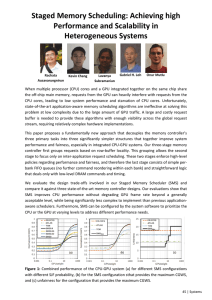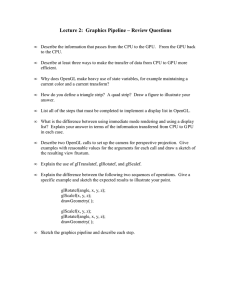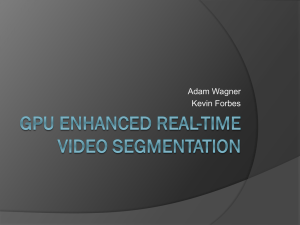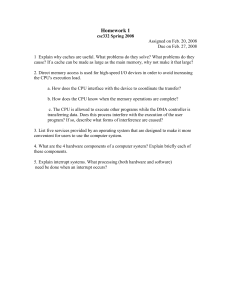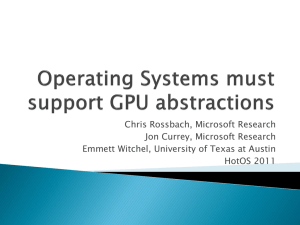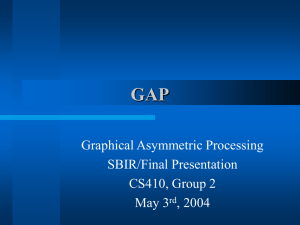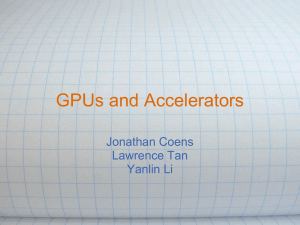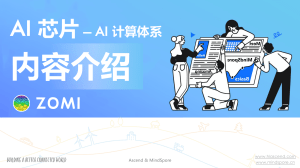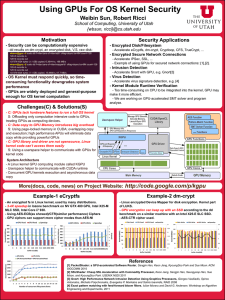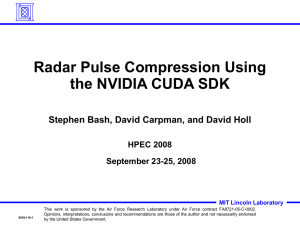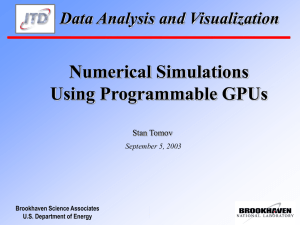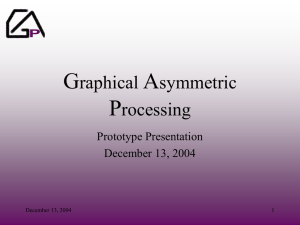Spring 2011 Prof. Hyesoon Kim
advertisement
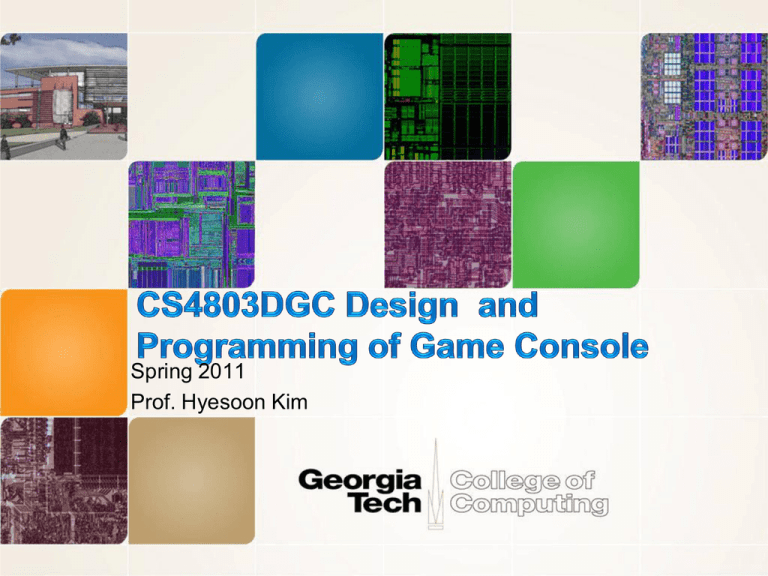
Spring 2011 Prof. Hyesoon Kim • More and more phone devices become game devices • Game characteristics of phone/tablet games (report from Nokia) – Many of them are for time killing (snack games) – Still core mania – Less gender biased • Snack games – Just casual games • Cross-platform • Location-based games (GPS) – BotFighter • Online games (multi-player) • Gambling • Platform fragmentation – Different platforms: different screen sizes, keypad, software environment – Less a problematic in smartphones • New interactions technologies: – Camera, GPUS, accelerators • Connectivity: – – – – More options for connecting internet 2G: 300ms to one second 3G: improve data rates but latency increases are marginal 4G: could replace Wi-Fi • Peripherals – Connect mobile phones with all other electronics – Use phone for generic peripherals • Security – Copy the game across multiple platforms – App stores • 3 Major companies – ARM GPUs – Imagination – Nvidia • Other companies – Freescale, • So far still low performance than high-end GPUs • But the performance & power issues are getting bigger • • • • Mali-55: smallest graphics processors Mali-200 Mali-400 MP Mali-T604 http://www.arm.com/products/multimedia/mali-graphics-hardware/mali-400-mp.php • Mobile platforms are SoC (System-OnChip) designs CPU GPU Memory others others • New challenges – Sharing the memory bandwidth • Scenario #1 – CPU wants to run a job and needs data but GPUs use the memory • Scenario #2 – Opposite of Scenario #1 • Scenario #3 – CPU and GPU split the work but need communications – Sending data from GPU to CPU and receiving data from CPU to GPU • CPU and GPU are sharing the power • CPU and GPU cannot use the peak power for long period. • Cooling, power gating, clock gating etc. • Currently each vendor has their own implementation versions • Performance/Power consumption issues • Imagination, Nokia • Nokia’s report: – Unintelligent scheduling algorithm makes CPU+GPU be worse performance/more power consumption than GPU only – Double data copy between CPUs and GPUs • Web apps: websites – HTML, CSS, JavaScript • Native apps: run it on locally, access to the hardware – iPhone/iPad: use Object-C , MacOS environment , SDK, Java – Android: Android SDK, Java • CSS stands for Cascading Style Sheets • Styles define how to display HTML elements • Styles were added to HTML 4.0 to solve a problem • Currently HTML 4 – Html 5 (still evolving) – GPU-powered HTML5 : more graphics components • Not Java !! • A script language that can be added to an HTML page to make it more interactive and convenient • More similar to functional languages • Variables, arrays, objects, and control structures (if, while, for etc.) • Submit your executable code into the google group before the presentation • Students can play the games … • 4-5 min presentation + 2-3 min demo • Presentation contents: – Overall game architectures – New technologies that you have to use • Report due: 4/29 • introduction, descriptions of the work (game architecture, CUDA algorithms. etc.) , output results (screen shots or bar graphs), challenges or difficulties, contribution from each team member , conclusion , references
